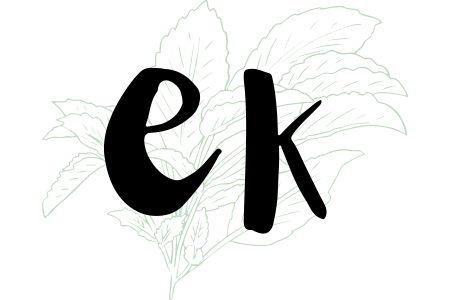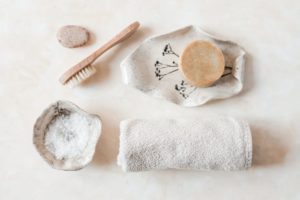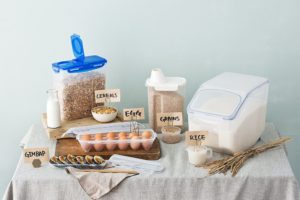Welcome to our 2021 Guide on high-quality, organic coffee beans and the growers and roasters that are well worth supporting. The best organic coffee beans come from farmers with missions to support indigenous, sustainable farming practices while advocating for their community’s health and prosperity.
Why is Buying Fair Trade Coffee Important?
Fair Trade coffee typically means you’re supporting environmentally responsible practices from small farmers and shareholder farmers who cultivate their land using healthy, sustainable agronomic techniques.
But there’s so much more to the coffee story than that.
In a best-case scenario, Fair Trade often supports the entire community, including the health and wellness of women and children by providing enough financial resources to fund healthcare and education in depressed rural regions.
In even better-case scenarios, coffee buyers and other small business roaster producers recognize these achievements (or discrepancies) and then work with communities above and beyond the Fair Trade label, providing much more than what market prices dictate.
That’s who we’ve aimed to find.
Though far from conclusive, our list includes a few notable coffee growers from Costa Rica, Mexico, Peru, Guatemala, and Rwanda. Additionally, you’ll discover some artisan coffee makers with creative coffee passion and a deep interest in supporting the sustainable foundations of sustainability – People + Planet + Prosperity.
Eco Karma’s Quick List
- Best Green Coffee. Farm Cup Coffee: Finca Rosa Blanca.
- Best with Food. Café Mam: Mochó Blend.
- Best for Espresso. Coffee Cervantes: Chirinos Cooperative.
- Best for AeroPress. Stumptown: Guatemala Finca El Injerto Bourbon.
- Best with Desserts. Larry’s Coffee: 42 Series.
5 Best Organic Coffee Beans of 2021
Now let’s take a closer look at these top 5 picks and why we decided they deserved a spot on our list.
1. Farm Cup Coffee: Café Rosa Blanca
Farm: Café Rosa Blanca – Owners, Glenn Jampol and Teresa Osman | Country: Costa Rica | Region: Santa Bárbara de Heredia | Altitude: 4265 ft | Known Varietals: Caturra, Obatá, Gesha, Marseillaise, Catuaí, Catimor | Roast: Medium–Dark | Notes: Toffee, Meyer Lemon, and Floral | Net wt. 12oz | Price: $23
History of the Farm
Established in 2002, Café Rosa Blanca is yet steeped in sustainable farming practices traditions, avoiding the use of agrochemicals, pesticides, herbicides, and fungicides—using only sustainable remedies, including:
- Native shrubs and trees to protect against water erosion
- Vermiculture and organic refuse to supply compost
The reforestation of more than 7000 indigenous trees on just 30 acres has established shade, nitrogen, and habitat corridors for birds, butterflies, other insects, and more wildlife, thereby contributing to biodynamic regeneration for the best organic coffee beans. It’s a small indication of what can be a global change.
Ornithologists are now able to identify 140 bird species at Café Rosa Blanca, including the Lesson’s MotMot and the Montezuma Oropendola – a stark contrast from just 50 birds, all in under 20 years.
Crop Ethics
100% Arabica Coffee / Organic / Direct Trade / Shade-Grown / Rainforest Alliance / ICAFE (Costa Rica National Institute for Coffee) / Kiwa BCS Garanté / Single Origin / Estate Coffee
Community Involvement
Café Rosa Blanca realizes their goal of helping the planet through more than just coffee. With advocacy and implementation of education and training, including socio-economic support of senior citizens, artisans, and children. As committed members of their community they seek to assure generational prowess.
The Coffee Distributors
You can find Café Rosa Blanca coffee beans at Farm Cup Coffee, a company intentionally established to work with sustainable, organic businesses. One current initiative involves donating to the Toucan Rescue Ranch in Costa Rica, assuring that environmental concerns evolve alongside the company’s imperatives.
2. Café Mam: Mochó Blend
Farm: Mam, Tzetzal and Mochó Farm Cooperatives | Country: Mexico | Region: Chiapas | Altitude: 4000 – 6000 ft | Known Varietals: Typica, Bourbon | Roast: 3 to 2, Medium and Italian Blend | Notes: Vanilla, Honey, Cocoa, Milk Chocolate, Nuts, and Fruit | Net wt. 16oz | Price: $11.50
History of the Farm
The Mam, Tzetzal, and Mochó people are native Maya farmers. They’ve each developed cooperatives with 300 to 700 hundred farmers in each co-op. Theirs is a results-driven, egalitarian, and democratic structure, demanding high work standards with ethics. Together, they serve the earth and worthiness of ancestry through:
- Generational planet care
- Community autonomy and independence from government oversight
- Sustainable growth via worker education and continued improvements for all farming communities
- Expansion of children’s rights, health, and learning
- Cultural resilience
- Training in organic agronomy
- A liberal approach to beneficial practices
Farmers also use terracing methods to prevent erosion, as well as natural approaches to eradicate pests using wild pollinators and pest predators, and other sustainable remedies for plant maladies.
Crop Ethics
100% Arabica Coffee Beans / Organic / Direct Trade / Shade-Grown / Fair Trade USA / SPP
Community Involvement
The Mam, Tzetzal, and Mochó cooperatives don’t just manage their land and future economic welfare. They also show great concern for their people, especially women and children. Some communities have even prioritized detecting cervical cancer and other basics of female-based medical care.
Though each cooperative is different, resiliency remains the common denominator.
The Coffee Distributors
Café Mam has worked directly with indigenous cooperatives since 1990 to produce the best organic coffee beans. It’s a process that includes an audit trail, ensuring no chemicals (pesticides or herbicides) sully the coffee you love.
Café Mam’s sustainability goals include climate change mitigation alongside advocacy for innovative farming. Successful campaigns have improved ground cover, weed and erosion control, soil structure, and, most importantly, the planting of more than 8000 trees on 3,400 acres necessary to achieve the goal. In addition, they’re retrofitting community processing plants to use solar energy.
Café Mam and partnerships have contributed to an excess of $108,000—a considerable sum in currency conversion.
3. Cervantes Coffee: Chirinos Cooperative
Farm: Chirinos Collectivo | Country: Peru | Region: Cajamarca, San Ignacio Province | Altitude: 4265 – 6561 ft | Known Varietals: Caturra, Pache, Bourbon, Typica, Catimor | Roast: Light | Notes: Blackberry, Tart Cherry Aroma, Nutty, Chocolate, and Dark Fruit Sweetness | Net wt. 16oz | Price: $18.00
History of the Farm
The Chirinos Collectivo was founded in 1968. Significant bureaucratic changes came in the 1990s, forcing members of the cooperative to adapt quickly or get left behind. Now, their sustainably based agronomy benefits the goals of almost 900 members, of whom nearly 200 are women. In part,
- The structural reorganization allowed them to concentrate on innovative efforts to secure better pricing and globally sought-after products.
- Expectations for agronomist involvement controlled the quality of the product.
- Composting systems called gascashi secured the control of pests using natural, low-cost methods while avoiding environmentally harmful pesticides.
Crop Ethics
100% Arabica Coffee Beans / Organic / Direct Trade / Shade-Grown / Fair Trade / Sustainable Harvest Sourcing and Transparency
Community Involvement
Members like Orestes Andrainzen Delgado, Edwin Silva Herrera, Lenin Tocto, and Carmen Aguila Hauman work as producers and directors. They note that the benefits received by membership support future generations (including young women), growth with oversight, and the implementation of beneficial procedures for each of the Mam, Tzetzal, and Mochó cooperatives.
The Coffee Distributors
Suppliers like Cervantes Coffee Roasters love what they do so much they want to teach you about what you love to drink most. Take an in-house tour to learn about the farmers, collectives, and sourcing for the best organic coffee beans.
There, you’ll learn what techniques are best for brewing your coffee, including roasting, heat management, as well as art & milk chemistry.
By the end, you’ll appreciate the work that goes into your one cup of coffee, from the carefully loved soil and plants to the perfected roasting techniques you enjoy supping each morning.
4. Stumptown: Guatemala Finca El Injerto Bourbon
Farm: Finca el Injerto – The Aguirre Family | Country: Guatemala | Region: Huehuetenango | Altitude: 4921 – 6233 ft | Known Varietal: Bourbon | Roast: Medium | Notes: Orange, Cherry, Milk Chocolate | Net wt. 12oz | Price: $20.00
History of the Farm
The Aguirre Family (now 3rd and 4th generations) is known throughout the global coffee growing community. They produce some of the highest quality, most sustainably grown—in fact, some of the best organic coffee beans in Guatemala, boasting:
- Meticulous farm management of over 1850 acres, of which nearly 950 acres is a natural forest preserve
- Top-down quality control ensures the separation of varietals alongside the harvesting and processing journeys.
- Coffee parchment is reused as fuel for the driers while vermiculture breaks down coffee cherry pulp into WORM COMPOST for use in future fertilizations.
- 2017 Carbon Neutral Certification
- 2019 (almost) 100% Solar panel/renewable energy
Ethics
100% Arabica Coffee Beans / Organic / Direct Trade / 100% Shade-Grown / Rainforest Alliance
Community Involvement
Rooted in El Injerto’s social responsibility efforts is advocating for worker’s physical and mental health with:
- Protective equipment
- Industrial and machine safety education
- Computer courses
- Personal and home hygiene
- Medical and dental plans
- Free medicine for common ailments
Workers also receive adequate housing, whether they are employed permanently or temporarily.
The Coffee Distributors
When searching for the best organic coffee beans in the world, Stumptown Coffee sends its coffee team directly to the farms, mills, and labs in the fields. Such Principles of Direct Trade foster one-on-one relationships with the farms and producers. They also pay higher-than-average prices, foster transparency in production, and develop collaborative, long-term relationships.
5. Larry’s Coffee: 42 Series
Farm: Rwanda Agaseke Women’s Group in cooperation with theKopakaki Dutegure Cooperative | Country: Rwanda | Region: Karongi District | Altitude: 4921 – 6561ft | Known Varietals: Bourbon, Kosher | Notes: Apricot, Black Tea, and Jasmine | Net wt. 12oz | Price: $16.75
Let’s take a pause. Rwandan coffee (and tea) farmers have been exhaustively underrated because of a long-past, unarguably horrific history. But change must be celebrated! Mercifully, the once troubled landscape is now ripe with unwavering sustainable potential. And honestly, the goodness and nutrients supplied by this volcanic rich soil deserves a second look, if not a first, one that aims at a woman’s place in the sun.
Interruption ended…
History of the Farm
Kopakaki Co-op coffee cherries are grown in the volcanic soils of Western Rwanda near the beautiful Lake Kivu. Cherries are first washed in mountain spring water, followed by a wet process to support fermentation, with a final stage of sun-drying on raised beds.
Seeking full transparency, the Kopakaki Co-op has enlisted quality control support with the Misozi team, allowing them to maintain coffee bean quality and achieving much-deserved prices per pound.
At the same time, the Agaseke women’s group processes coffee cherries onsite during alternate and “normal” processing days to ensure additional transparencies in production.
Ethics
100% Arabica Coffee Beans / Shade-Grown / Fair Trade / Rainforest Alliance
Community Involvement
The Kopakaki Dutegure co-op has invested in access to electricity and water for farmers, education to improve financial resources, crop quality, farm yields, and make buyers accessible.
They’ve also provided trees and cows to members to enhance growing (and manure) capacities. As such, female members have been able to pay for school fees, health insurance, and even necessary home repairs.
Note: If you’re yet unaware, the gift of a cow is not only cultural but it’s a gift of prosperity.
With the result of Kopakaki’s gender equality initiative, 27 small women-led farming groups (including 500 women smallholder farmers) are credibly established under their own cooperative’s name: Rwanda Agaseke Women’s Group. With the full support of the Kopakaki parent group, this vastly underrated group of coffee farmer/producers may soon find itself spotlighted on the coffee market.
The Coffee Distributors
Some of the standout elements to Larry’s Coffee’s support and its B-Corp Certification includes their use of sustainable packaging, composting, solar collectors, rainwater harvesting, and biodiesel use.
Better yet, Larry’s Coffee understands that companies often marginalize those small farmers because they live and grow in remote regions, because they lack infrastructure and transportation. As such, Larry’s Coffee founded a Cooperative Coffees group, aiming to work directly with farmers by building relationships, offering pre-financing, and (happily) providing fairer prices.
More on Global Fair Trade Ethics and Sourcing
At Eco Karma, we’re always finding new paths to sustainable living with tips for Family, Health & Living, Household, Nutrition, Outdoors & Gardening, and Renewable Energy.
So, if you like the breakdown on Fair Trade Coffee beans, check out our articles about the 8 Best Fair Trade Chocolate Brands: The Buzz on Fair Trade Chocolate Part I and The Buzz on Fair Trade Chocolate Part II.
Meet Your Author

Amy Wolkenhauer has been a full-time freelance writer since 2014. Her Bachelor of Arts degree in English and Bachelor of Science degree in Sustainability complement each other.
Combined, these degrees provide her with the communication tools necessary to create tangible links between scientists, stakeholders, marketplace & policy actors with communities everywhere.









